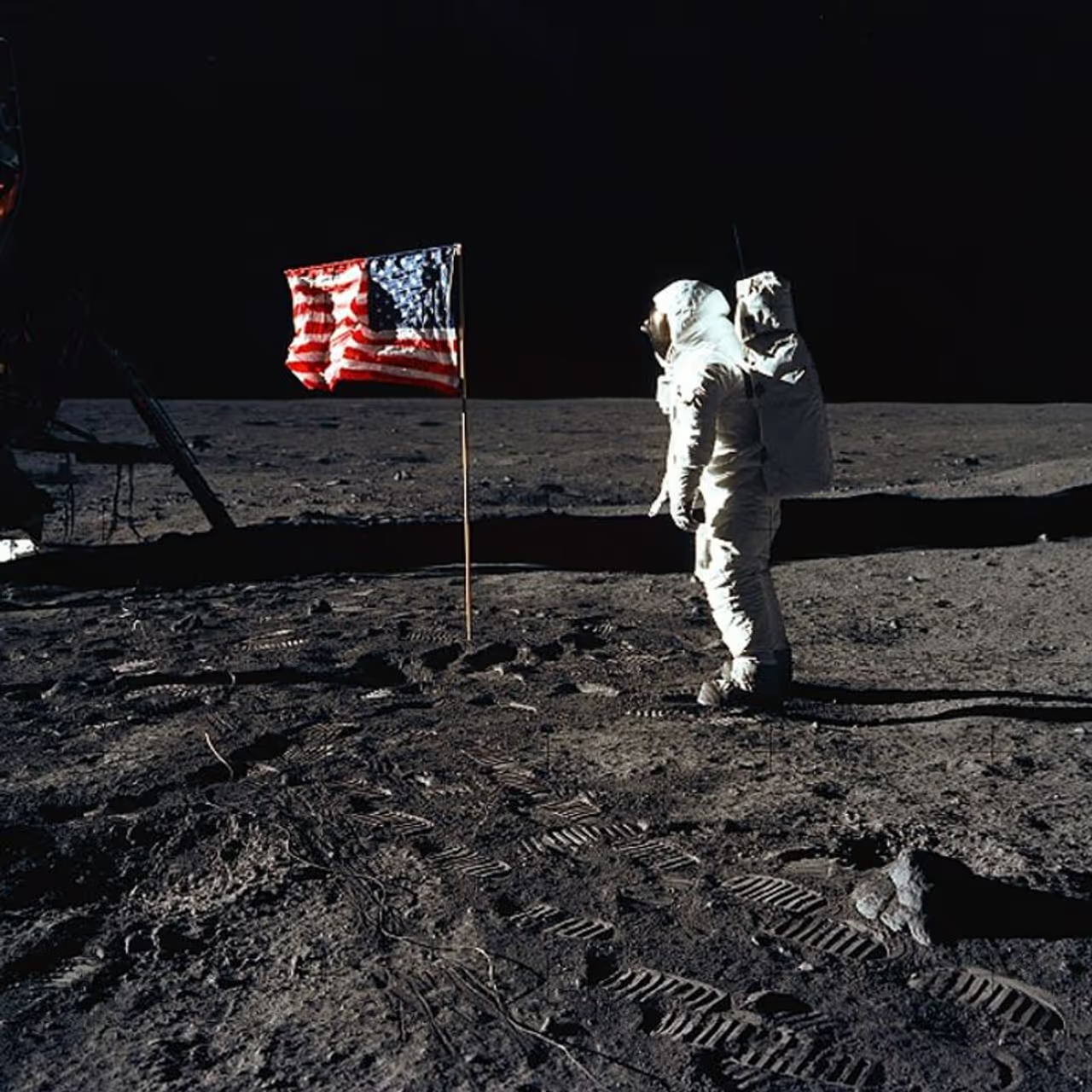Controversy unfolds as AI analysis, presented to Russian President Putin, questions the authenticity of US moon landing images from 1969 Apollo 11 mission, reigniting debates over historical events and raising concerns about Western AI monopoly.
In a recent development during the "World Tour of Artificial Intelligence" in Moscow, a new theory challenging the authenticity of the US moon landing has emerged, fueled by artificial intelligence (AI) analysis. Russian President Vladimir Putin was presented with an AI demonstration suggesting that images of the historic Apollo 11 moon landing may be synthetic or inauthentic.

During a video presentation featuring Putin and Nikolai Gerasimenko from Sberbank, a neural network analysis was showcased, claiming the possibility that the iconic images of US astronauts on the moon could be fake. The video gained widespread attention as it captured Putin questioning the authenticity of the Apollo 11 images displayed on the screen. Gerasimenko explained that the neural network evaluated factors such as light-dark contrast and raised concerns about the images.
Gerasimenko clarified that the AI analysis specifically used Google's neural network. Interestingly, the neural network did not raise any red flags about images captured by the Chinese lunar rover during its mission to Chang'e, highlighting the selective nature of the AI's findings. Notably, there has been no official response from the US or NASA regarding the AI analysis or Putin's questioning of the moon landing images.
Discussions questioning the authenticity of the Apollo 11 mission, dating back to July 20, 1969, continue to resurface periodically. Elon Musk, the CEO of SpaceX, has previously raised similar doubts, suggesting in a tweet that the moon landing may have been simulated using computer technology. These debates add a layer of controversy to the historical achievement, stirring public interest and skepticism.

In a broader context, Putin announced plans to endorse a national strategy for AI development, expressing concerns about an "unacceptable, dangerous, and inadmissible" Western monopoly on AI technology. He emphasized the potential threat posed by foreign-trained systems and argued for increased resources for supercomputer development to enhance national AI research. Putin's remarks also touched on the risk of AI algorithms from Western platforms exhibiting xenophobic tendencies.
The convergence of AI technology and historical events like the US moon landing has sparked a renewed debate over the authenticity of iconic images. Putin's reaction to the AI analysis adds a political dimension to the ongoing discussions about the veracity of historical achievements. As the world continues to grapple with the implications of AI in various spheres, the intersection of technology and historical narratives remains a subject of intrigue and controversy.
